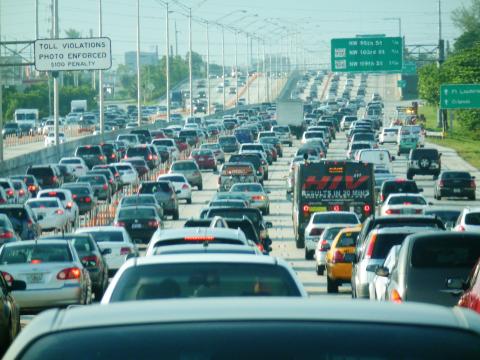States sue Biden administration over highway emissions rule

by Chris Woodward
The new rule by the Federal Highway Administration and the U.S. Department of Transportation, which goes into effect on Jan. 8, would require transportation departments in states with National Highway System mileage to create targets for carbon dioxide reduction and send results to the federal agencies.
The states' complaint, filed in the U.S. District Court for the Western district of Kentucky, argues the federal agencies don't have the authority granted by Congress to require states to reduce emissions.
"Congress has not given FHWA or DOT authority to regulate greenhouse gas emissions," the complaint says. "Nor can the Agencies compel the States to administer a federal regulatory program or mandate them to further Executive policy wishes absent some other authority to do so—which is lacking as to this rule."
According to the Federal Register, the rule "requires State departments of transportation (State DOT) and metropolitan planning organizations (MPO) to establish declining carbon dioxide (CO2) targets for the GHG measure and report on progress toward the achievement of those targets. The rule does not mandate how low targets must be."
In addition to Kentucky Attorney General Daniel Cameron, 20 other attorneys general from the following states joined the complaint: Alabama, Alaska, Arkansas, Florida, Idaho, Indiana, Iowa, Kansas, Mississippi, Montana, Nebraska, North Dakota, Ohio, Oklahoma, South Dakota, South Carolina, Utah, Virginia, West Virginia, and Wyoming.
"President Biden is unconstitutionally ramming his radical climate agenda through administrative agencies that lack Congressional authority to implement such actions," Cameron said in a statement. "We will not stand by while this administration attempts to circumvent the legislative process."
Montana Attorney General Austin Knudsen's office noted in a statement the rule would disproportionately harm rural states where drivers have to drive farther distances.



























